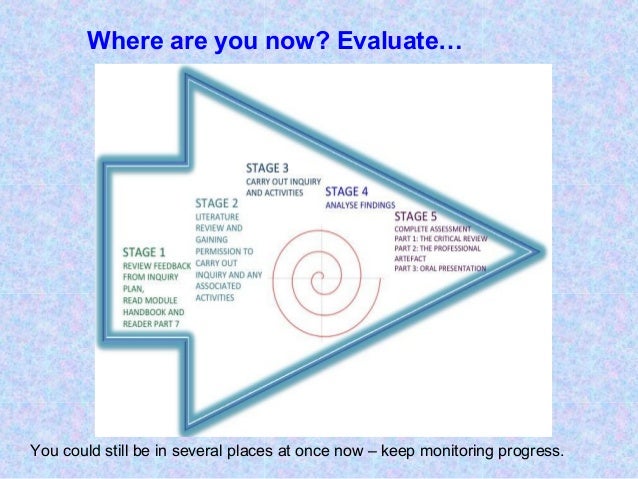A Critical Reflection on my learning experience throughout Module 3…
Module 3 has been, by far, the most challenging part of the BAPP Arts course. It has been a huge workload to complete in such a short time frame and I certainly feel as though it pushed me to keep up the momentum with my work and be very aware of my time management. I feel as though my skills in this area have improved and this is something I can carry forwards into my further studies. Organisation really has been key throughout this entire project; the Module 3 Handbook along with Reader 7 assisted me in visualising how to best organise the Module into sections that could be completed systematically so as to avoid confusion. thinking about the project in stages that naturally developed into one another helped me to monitor my progress and ensure that I was fully completing each step before moving on to the next level of development.
I started Module 3 feeling like a tiny, tiny fish in a massive pond. The research and inquiry tools looming before me seemed rather daunting and it took me a while to get to grips with where I was going and what I wanted to find out through my research. Here I welcomed the help of my SIG as well as the advice offered in a group chat on Facebook I have the pleasure of being a part of with other Module 3 students. It is great because we all encourage each other and reassure people’s ideas, opinions and paths of discovery which has been a great help for me throughout the entire duration of Module 3.
Forming my literature review was really where I started with my research. I re-read all of the sources that I had mentioned in my Professional Inquiry Proposal for Module 2 and these helped set me off on the right foot. Finding the relevant sources took a lot of perseverance and at one stage I was sure that I would struggle to get my project moving forwards as the sources seemed rather scarce and irrelevant. However once I got the ball rolling I was pleased to find a range of sources which contained excellent expert ideas, theories and opinions to be noted down for my inquiry, and so my topic area was finally set in stone.
I then set to organising my interviews with arts industry practitioners exploring, as I went, how to best structure an interview to get the most out of the experience. I have explained previously that my intention to do a focus group unfortunately fell through however, upon final reflection I can say that I am very pleased and satisfied to have been able to conduct 6 very informative interviews. Having now written my Critical Review I can say with assurance that I had all the information I needed to meet the requirements of this research project.
It was a lengthy task to transcribe the data yet far more challenging to actually analyse it. I did this by picking out key themes from the interviews as a whole. These themes emerged from the questions I had asked which in most cases were of similar wording. I eventually was ready to pick out the key quotes I wanted to use from each interview, all of which appear in the Analysis section of my Critical Review. Alongside this I also took to the task of picking out main quotes from the sources I had collected for my literature review which was no easy feat. My method was to highlight the quotes in each source and then type all quotes (with references) into one document under themes. This enabled me to systematically include them in the Evaluation section of my Critical Review.
Moving onto the Professional Artefact section of Module 3, this developed very late on for myself as I wanted to be secure in my research and the writing of my Critical Review before starting it. As stated in previous blogs, I chose to write an article which presented my findings in an informative yet visually exciting way. I actually really enjoyed writing the article as it is a completely different way of writing and one which I had not done for a while. It gave me the opportunity to be more creative and informal in my writing style which is very different to the more academic way of writing used in my Critical Review. I also included an image I had drawn which was also a very enjoyable part of the process as it is not often that i put pen to paper to create an image!
The final stage of Module 3 is the oral presentation which will not be happening for another few weeks. Once the 6th of January deadline has passed, all of my focus will go into creating a Powerpoint presentation and complimentary script for me to take reference from as I present my research to the audience. Although a nerve-racking, this is something that I am looking forward to as I will be able to explain and present my hard work to others who will be able to do the same in return so it will be a lovely sharing experience. To go with my presentation, I plan to get a few copies of my article professionally printed t hand around and give people an idea of what my artefact looks like. Updates on my oral presentation will follow in the near future.
I am glad to have chosen a topic area that genuinely means a lot to me and really sparks my interest. As I have probably mentioned before, I am looking to study the law following the BAPP Arts course and hopefully, eventually, become a solicitor. I wish to specialise in areas of the law that sit within the arts industry; entertainment and intellectual property being the major two. I want to help artists in any legal disputes they find themselves in and advocate for the expansion of the services that assist artists in their professional lives to ensure that they are happy and legally secure in their workplace. Overall, Module 3 has secured my enthusiasm for this topic area and allowed me to better my own practice by learning more about the law and how the arts industry sits within it. Going forwards I can use all of the knowledge I have gained from this research project to fuel my future legal studies - something I am so excited to embark upon!
Lil' Blogger






